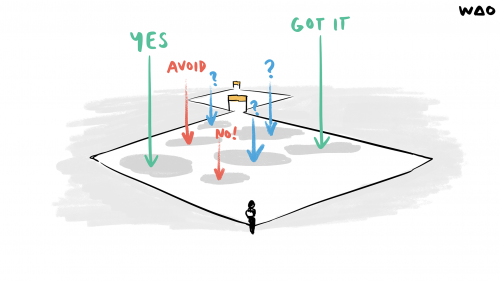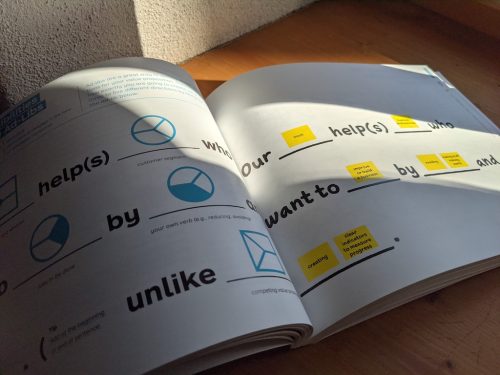Mapping landscapes for longterm, strategic change
originally published on Medium
We’re entering Week 7 of the Definition programme, and our cohort is beginning to put prototypes, concepts and ideas in front of their users.
In our cohort, we’ve been using the metaphor of a map. A definition phase of any project is about mapping the contextual landscape of the project and the organisation running it. As each charity moves forward in their digital transformation initiatives, the landscape they’ve mapped will become invaluable. We have been thinking up front about:
- Stakeholders and how to manage them
- Users and structures to engage them
- Pre-existing systems and pain points
- Content focus and production methods
Considering these areas more broadly allows us to make decisions that are right for the organisation as a whole, rather than a small group of people or a single team.

Armed with a landscape of knowledge, we zeroed in on small manageable problems that we could prototype solutions for. We needed to make sure each problem was small enough to prototype a solution for and run some user tests on inside of the programme. Many people have heard of a MVP, a minimum viable product, and so we introduced the idea of a Minimum Lovable Product. Next, we had everyone make paper zines to help focus ideas./media/0653d78edda6f211d9b018c4ec07d3c8Laura Hilliger explaining what a ZINE is good for
Next, we used an “ad lib” exercise from one of We Are Open’s favourite user-centered design manuals, Value Proposition Design, to put some design constraints in place on each of our prototypes. Looking at the benefits of a particular idea helped us to determine which ideas would have the most impact.
Peer to Peer Grouping
Once we focused in on what we were all doing, it was time to jump into prototyping. We broke up into four small groups, roughly organized by theme.
- Beats Bus and Worcester Cathedral are focusing their prototypes on engaging content for teaching and learning. BeatsBus is putting together an online course to include in their mentorship programme, and Worcester Cathedral is testing interactive content to share history with Cathedral visitors and fans.
- Action Hampshire, Citizens Advice North East Derbyshire and Pennysmart are all focused on creating more effective communication for their audiences. Their prototypes will test new ways of arranging information. They are working on everything from terminology to design to pathways through their sites.
- Kent Coast Volunteering, Totnes Churches and WECIL are focused on process improvement. This group is thinking through ways of digitalising registration processes, email automation and payment processes. Their prototypes are focused on making life easier for their end users while also streamlining things for their colleagues.
- Caxton Youth and Collage Arts are focused on running more user research around wants and desires in their communities. This will help them determine what they want to offer first. Both of these organisations are working with WordPress, so I’ve encouraged them to use the Definition Programme to dream big. Once they know what’s most important to their audiences, it will be easy to find suitable plugins or to build new ones for WordPress.

We Are Open showed loads of tools and techniques for prototyping, and we’ve run hands-on sessions to help each of our ten charities build a *thing* to put in front of users. We’ve given tips and tricks for proper user testing strategies. We’ve also lengthened the Testing Phase from one week to two because of the Easter holiday, lockdowns in the UK starting to loosen and the general springtime vibe that is perforating the backdrops in our Zoom workshops and sessions.
Next steps
It’s time for our ten charities to put their prototypes in front of real users, and we’re eager to see what they learn. We know that whatever each charity prototypes is only part of the bigger picture, and we’re working hard to make sure they know they can take our strategies and methods and apply them elsewhere in their work.